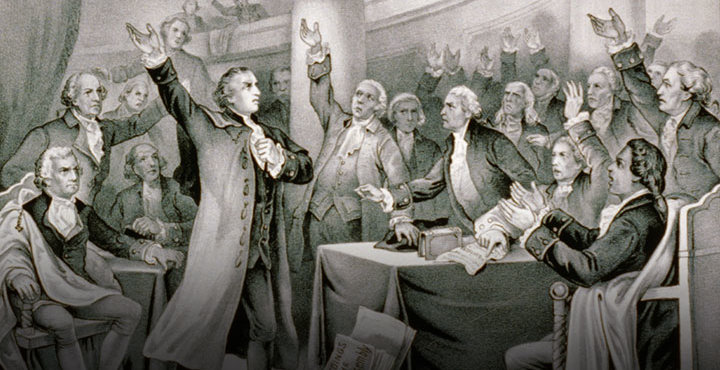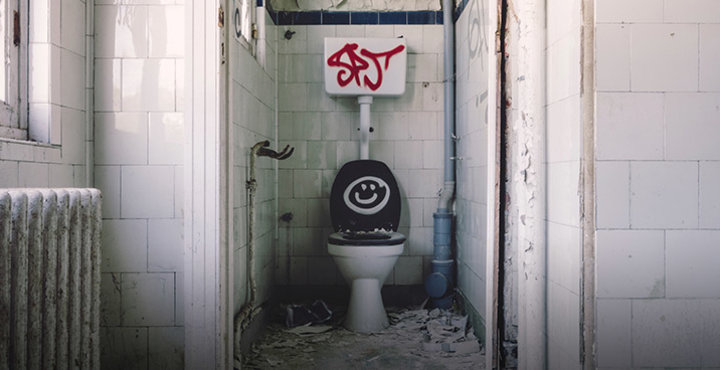Part 4 in Our Series on the Grammar of Swearing
Written by Taylor Dennis
You've learned a lot about swearing over the past few weeks. Now it's time to wrap the lesson up by discussing when it is okay and when it is abso-frickin'-lutely not okay to swear in your writing.
Swearing in Academic Writing
Don't do it. Unless you are writing a thesis about the linguistics of swearing or quoting something else that contains swearing, there is no reason for the use of profanity in your academic writing. I know—school is boring.
Swearing in Personal Correspondence
How you talk to your friends is your business, but keep this in mind: something that is intended as light-hearted or humorous can easily come off as harsh and mean when in writing, and adding profanity can be a sure way to cause miscommunication. Consider these two similar situations.
Situation 1: You are hanging out with your best friend. She admits that she has forgotten her mother's birthday. You laugh, but in a way that seems understanding, not judgemental. You then say, jokingly, "Oh my god, what the hell is wrong with you?" After this, you laugh a bit more, she laughs with you, and then the conversation naturally moves on to what she should buy for her mother.
Situation 2: You are texting your best friend.
Her: I forgot my mom's birthday!
You: omg what the hell is wrong with you?
She becomes offended because she thinks you are serious, though you really did intend it lightheartedly. She gets mad at you. You spend the next 20 minutes texting, trying to convince her that you were joking. You now have to take her out for dinner tomorrow to try to mend her hurt feelings. Thanks to your cell phone, you are now out at least 30 bucks.
Even if you are very, very close with someone, be careful about your use of swearing in casual correspondence, like texting, online messaging, email, and even phone conversations. If you just remember that technology is the worst thing ever, you should be fine.
Swearing in Professional Writing
Nope.
Swearing in Fiction or Other Creative Writing
As you've probably figured out by now, swearing is a very big part of casual language. You swear, your friends swear, your parents swear—most people swear. So it's only natural that, as an author, you might find it necessary to incorporate swearing into your writing to create realistic characters.
But how should this be done? The trick to using swearing in your writing is not to overdo it. Many novice writers feel the need to inject their fiction with the harshest of expletives to communicate a mood or to represent the character and that character's situation as authentically as possible.
There are two problems with this approach. First, it's lazy. There are other ways, better ways, to communicate mood, character, and setting to your reader. Second, it's incredibly off-putting to the reader. This is because swear words are not like other words; regardless of the context, swear words elicit an emotional response.
Swearing and Emotional Responses
People have emotional reactions to reading or hearing swear words. Even if they do not feel offended, their attention is caught by the use of a taboo word. In fact, swear words are so tied to emotion that many people with dementia still swear even if they struggle with other speech-related tasks. Some researchers postulate that this is because swear words are remembered in a different part of the brain than regular words. Interestingly, researchers have also suggested that the effect of swearing lessens the more one uses or is exposed to curse words.
There are two things to take from this. First, the overuse of curse words can elicit an unintentional emotional response in your reader—one that might make them not want to continue reading. No matter how "gritty" you want your writing to be, you still want people to actually read it. Second, remember that saving swearing for a very important moment will be much more effective than sprinkling curses throughout your work.
Say, for example, that you're writing a novel about a housewife who is having a breakdown. If she's calling her friends to drop f-bombs from page one, then the climactic scene in which she leaves her husband won't be progressed or helped at all by the use of strong language. The language should help represent the breakdown she has experienced, which means it should only be used in a way that intentionally shocks the readers.
Conclusion
Well, friends, that concludes our in-depth series on swearing. I hope you had an effin' amazing time learning about the background and uses of some of your favorite vulgar phrases, and I hope you'll keep this information in mind during your future work.
If you haven't checked out the rest of the series yet, be sure to read the previous posts on the origins of swear words, the history of obscenity, and the grammar of swearing. I also recommend checking out Holy Sh*t: A Brief History of Swearing for more interesting information!
Image source: deagreez/BigStockPhoto.com
Discover the Benefits of Professional Editing
Hire a Professional Editor, or Get a Free Sample
About the Author
Taylor Dennis is a writer and editor based out of Toronto, ON. She's obsessed with dogs, food, serial commas, and the written word, pretty much exactly in that order. You can find more of her work at taylordenniswrites.com, where she publishes a blog about life, health, and all the rest.









